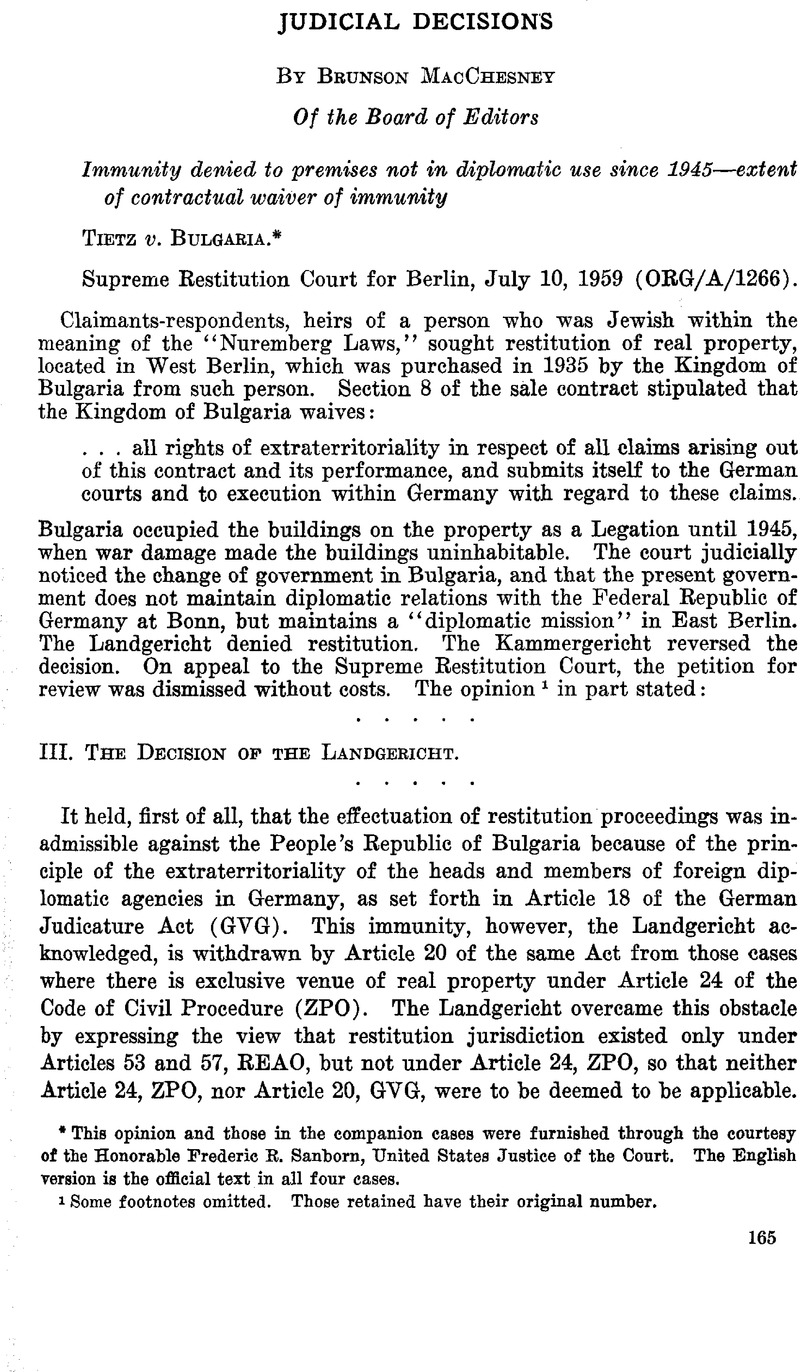No CrossRef data available.
Published online by Cambridge University Press: 28 March 2017

This opinion and those in the companion eases were furnished through the courtesy of the Honorable Frederic R. Sanborn, United States Justice of the Court. The English version is the official text in all four cases.
1 Some footnotes omitted. Those retained have their original number.
1 The emphasis appears in the Kammergericht's opinion.
4 In its brief Bulgaria acknowledges that there must be an undefined limitation of its contentions, “because a true exercise, in another State, of the sovereign rights of a foreign State is impossible.“
5 American Journal of International Law, January, 1959; Volume 53, at page 268. The emphasis is our own.
6 This use of the singular form of the word is not intended to exclude the plural where it is the fact that a sovereign State has more than one operative capital. But such a case is not now before us.
8 We do not intend to exclude the special case, which likewise is not before us, of a building or buildings used by the ambassador or by his staff for recuperative or recreational or similar purposes. The conservation of the health of the ambassador and of his staff is legitimately to be fostered because it facilitates the transaction of diplomatic business.
9 Bulgaria's brief states explicitly that embassy buildings would lose their “extraterritorial status if, at a later date, another real property takes the place of the original residence of the ambassador.“